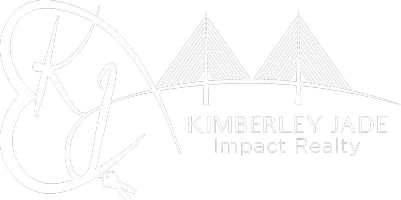The Ultimate House Hunting Checklist for Buyers
by Kimberley Jade

The Ultimate House Hunting Checklist for Buyers
A house hunting checklist is more than just a list – it’s a strategy. With so many properties to consider, a checklist helps you narrow your search to homes that truly fit your lifestyle and goals. Without a checklist, you risk making emotional decisions, missing red flags, or settling for a home that doesn’t meet your needs – leading to costly renovations or the frustration of moving again too soon.

What to do before you start house hunting
Before touring homes, make sure you’re financially and mentally prepared to buy. Using a detailed house hunting checklist before you visit homes can help you stay focused and organized. Here’s where to start:
- Get pre-approved for a mortgage. This shows sellers you’re a serious buyer, strengthens your offer in competitive markets, and gives you a clear price range to shop in.
- Figure out your budget: Use a home affordability calculator to estimate how much house you can afford based on your income, debt, and down payment.
- Hire an experienced real estate agent. Look for someone with local expertise and strong negotiation skills to help you identify homes that meet your criteria, schedule showings, interpret market trends, and craft a competitive offer.
- Chose the right neighborhood. Consider your daily lifestyle: commute times, proximity to schools and parks, and access to public transit. Walkability, future development plans, and safety ratings can also impact your decision and home value.
- Consider the type of home you are looking for. Think about how much space you need, the level of maintenance you’re comfortable with, and whether you prefer a newer build or a home with character.
- Check out Redfin’s home buyer checklist when you are ready to take the next step.
What to look for inside the home
When it comes to interiors, function is just as important as style. Think beyond looks — your home should suit your daily routines, storage needs, and future plans.
- Square footage. Decide on a minimum square footage that fits your lifestyle — enough space for furniture, storage, and future needs — and a maximum that won’t feel overwhelming to maintain.
- Number (and size) of bedrooms. Consider how many people will be living in the home and how the rooms will be used. Do you need a guest room, home office, or nursery? Think about flexibility as your needs evolve.
- Number (and size) of bathrooms. How many full and half baths do you need? Consider whether you want an en suite in the primary bedroom, a bathroom on each level, or extra space for accessibility and privacy.
- Basement or cellar. Is a basement important for storage, a home gym, or future finishing potential? Decide whether you prefer it finished, partially finished, or unfinished for utility use.
- Laundry. Look at the location (main level, basement, or second floor), noise insulation, and space for appliances. A dedicated laundry room might be more desirable than a closet setup.
- Open or closed floor plan. Open plans can feel more spacious and social, while closed layouts offer more privacy and room separation. Choose based on your lifestyle and noise tolerance.
- Flexible spaces. Look for rooms that can serve multiple purposes — like a den that could function as a guest room, office, or gym. Adaptable spaces offer long-term value and reduce the need to renovate or move.
- Extras: fireplace, crawl space. Decide whether features like a fireplace or crawl space are must-haves, nice-to-haves, or deal-breakers. These can affect comfort, storage, and even energy use.
- Accessibility. Consider if the home layout is friendly for all ages and abilities. Wide hallways, step-free entry, and accessible bathrooms can future-proof your investment.
- Unpermitted additions. Unpermitted renovations can become legal and financial headaches. Always ask your agent or inspector to flag these during your tour.
- Wall and floor condition. Check for cracks, water damage, uneven flooring, and general wear and tear. These may signal deeper issues with the foundation or past repairs.
- Integrated fixtures and systems. Take note of the HVAC system, electrical panel, light fixtures, and appliances. Are they up-to-date? Do they come with the home?
- Odors. Persistent smells from pets, smoke, or mold can indicate poor maintenance or hidden damage. Don’t overlook this — your nose knows.
- Pet-friendly features. Consider pet doors, durable flooring, fenced yards, nearby parks, or mudrooms for cleanup. HOA rules may also restrict certain breeds or pets — be sure to check in advance.

What to look for outside the home
The outside of a home affects everything from curb appeal to privacy to future upgrades. Make sure it checks all the boxes, too.
- Lot size. Do you want space to garden, entertain, or expand later? Larger lots offer flexibility but also increase upkeep. Define your minimum lot size early in the process.
- Garage. Consider whether an attached or detached garage is more functional for your needs. Think about the number of vehicles, storage space, and even future EV charging.
- The yard. Evaluate whether the yard is fenced, flat, shaded, or landscaped. Does it offer privacy from neighbors? Look at deck or patio size, outdoor lighting, and potential for gardens, fire pits, or a play area.
- Roof condition. A new roof can cost thousands. Look for curling shingles, discoloration, or sagging — signs that repairs or replacement may be needed soon.
- Foundation and drainage. Inspect for cracks in the foundation, standing water around the home, or signs of poor drainage, which can lead to costly structural issues.
- Siding and paint. Peeling paint or damaged siding may signal deferred maintenance. Note the type of siding (vinyl, wood, stucco) and whether it fits your maintenance preferences.
- Windows and doors. Are the windows energy-efficient and properly sealed? Check the condition of window frames, screens, and doors — especially the front entry and sliding patio doors.
- Driveway and walkways. Consider the size, condition, and layout of the driveway. Will it fit multiple cars or guests? Look for cracks or uneven areas in the walkways that could be a tripping hazard.
- Noise and privacy. Listen for nearby traffic, construction, or airport noise. Look at fencing, tree coverage, and window placement for privacy from neighbors and street views.
- The potential to make exterior changes. Planning to install solar panels, add a porch, or update siding? Check for HOA restrictions or local zoning rules that could limit modifications.
What to consider about the neighborhood
Don’t forget to add neighborhood factors to your house hunting checklist to get a full picture of where you’ll live. The vibe of a neighborhood can be just as important as its location. Pay attention to the overall atmosphere — whether it feels lively and social or quiet and residential. Visit on both weekdays and weekends to observe how active the area is, who spends time outside, and whether the pace matches your lifestyle.
Also consider:
- Commute times to work or school
- Access to public transportation
- School district ratings
- Walkability and safety scores
- Future development plans or zoning changes
Look at how easily you can get to everyday essentials and leisure activities. Is there access to public transportation? Are you near shopping centers, restaurants, movie theaters, or music venues? The right home should match your day-to-day needs and your lifestyle preferences.
Check out neighborhood amenities such as:
- Grocery stores, pharmacies, and gas stations nearby
- Public parks, trails, or green spaces
- Community centers or gyms
- Coffee shops, restaurants, and local businesses
- Library or post office access
- Reliable cell service and internet availability
Add to your house hunting checklist: neighborhood vibe and activity
The overall energy of a neighborhood can be just as important as the features of the home itself. Add neighborhood vibe and daily activity patterns to your house hunting checklist. Walk or drive through at different times of day to get a sense of how lively, social, or quiet the area feels. Is it family-friendly, dog-friendly, or more fast-paced and urban? Look for signs of pride of ownership, like well-kept yards or community gardens, and observe whether neighbors interact with one another.
Consider how engaged the community is. Are there regular block parties, neighborhood meetings, or social events? Community involvement can affect everything from safety to your sense of belonging. Check if there are local clubs, recreational leagues, or volunteer groups you might want to join. A connected neighborhood often hosts events like block parties, seasonal festivals, or farmer’s markets. These gatherings can increase your sense of belonging and help you build relationships faster. As part of your house hunting checklist, ask your agent or prospective neighbors about local clubs, activity groups, or online community boards.
Questions to ask while house hunting
- When are offers due by? Time-sensitive offers can impact your strategy and timeline.
- How many offers have already been made? This gives you insight into competition and whether you’ll need to bid above asking.
- Why are the owners selling? Knowing the seller’s motivation can help you tailor your offer and negotiations.
- Is the home for sale “as is”? An “as is” sale may mean the seller won’t make repairs — make sure you’re comfortable with the risk.
- Does the property have any problems that need to be addressed? Ask about past inspection reports, known issues, or pending maintenance that could affect the value or livability.
Find the right home with confidence
Looking for a house to buy is an exciting but complex journey, and having a clear house hunting checklist can make all the difference. By knowing what to look for inside, outside, and in the surrounding community, you’ll feel more confident in every decision you make. Whether you’re attending your first open house or preparing to make an offer, let this house hunting checklist guide you toward a home that fits both your lifestyle and your long-term goals.
Categories
Recent Posts











"My job is to find and attract mastery-based agents to the office, protect the culture, and make sure everyone is happy! "
